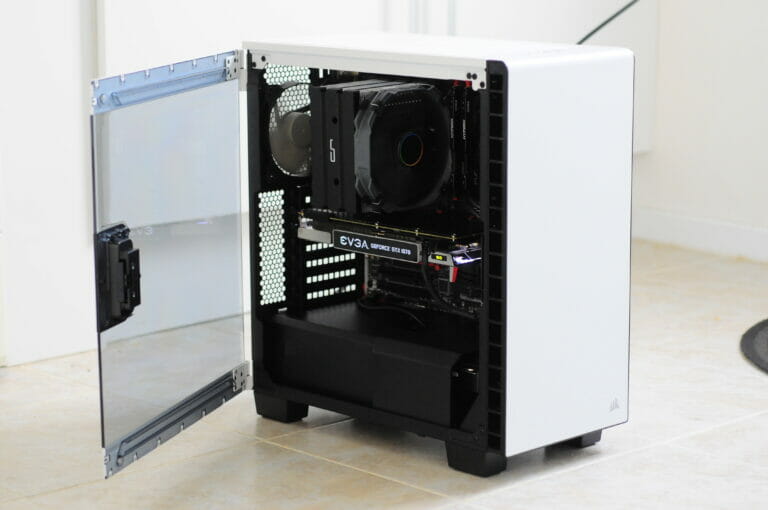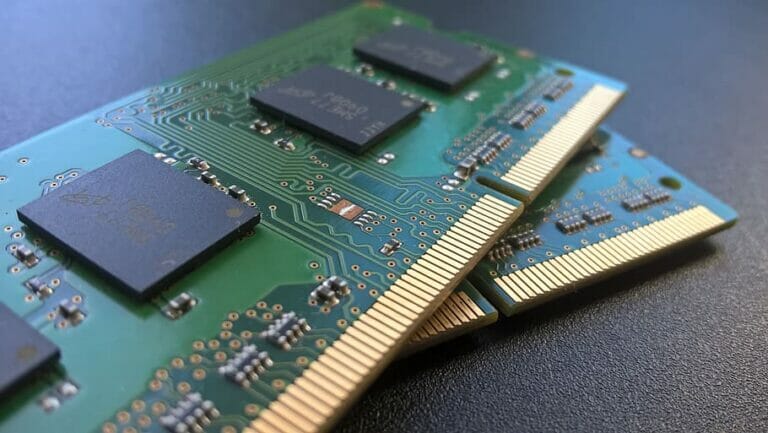
Gaming laptops are becoming increasingly popular among students, but are they suitable for academic work?
In this article, we’ll take a closer look at the benefits and drawbacks of gaming laptops for school use and help you decide whether they are the right choice for you.
Table of Contents
- Introduction
- What Is a Gaming Laptop?
- Pros of Using a Gaming Laptop for School
- High Performance
- Multi-Tasking Capabilities
- Durability
- Cons of Using a Gaming Laptop for School
- Heavy and Bulky
- Short Battery Life
- Costly
- Factors to Consider When Choosing a Gaming Laptop for School
- Processor
- Graphics Card
- Storage
- Battery Life
- Size and Weight
- Top Gaming Laptops for School Use
- Conclusion
- FAQs
Introduction
In recent years, gaming laptops have gained immense popularity among students. They are known for their high performance, durability, and multi-tasking capabilities, making them ideal for running resource-intensive applications such as gaming and video editing. However, many students wonder if gaming laptops are good for academic work, and whether they are worth the investment.
In this article, we’ll explore the pros and cons of using a gaming laptop for school and help you make an informed decision.
What Is a Gaming Laptop?
A gaming laptop is a type of laptop computer designed for running high-end video games and other resource-intensive applications. They typically feature powerful processors, dedicated graphics cards, and large amounts of RAM, allowing them to handle complex games and multitasking with ease. Gaming laptops also often have larger screens and better sound systems than standard laptops.
Pros of Using a Gaming Laptop for School
High Performance
One of the main benefits of using a gaming laptop for school is its high performance. Gaming laptops are equipped with powerful processors and dedicated graphics cards, allowing them to handle even the most demanding applications with ease. This makes them ideal for running resource-intensive programs such as CAD software, video editing software, and other academic software that requires a lot of processing power.
Multi-Tasking Capabilities
Another advantage of gaming laptops is their multi-tasking capabilities. With their powerful processors and large amounts of RAM, gaming laptops can handle multiple applications at once without slowing down. This means that you can have several windows open at the same time, making it easier to switch between programs and complete your school work more efficiently.
Durability
Gaming laptops are designed to be durable and long-lasting. They are built with high-quality materials and often feature reinforced frames and cooling systems to prevent overheating. This means that they can withstand the wear and tear of daily use, making them a good investment for students who need a reliable and sturdy computer for their school work.
Cons of Using a Gaming Laptop for School
Heavy and Bulky
One of the main drawbacks of gaming laptops is that they are heavy and bulky. They are designed to accommodate powerful processors and graphics cards, which can make them quite large and heavy compared to standard laptops. This can make them difficult to carry around, especially if you have to travel between classes or campuses.
Short Battery Life
Another downside of gaming laptops is that they often have short battery life. Gaming laptops require a lot of power to run, and their high-performance components can drain the battery quickly. This means that you may need to keep your laptop plugged in during classes or carry a spare battery to ensure that you can use it throughout the day.
Costly
Gaming laptops are typically more expensive than standard laptops. They require powerful components, such as processors, graphics cards, and RAM, which can drive up the cost. If you’re on a tight budget, a gaming laptop may not be the most practical option for school use.
Factors to Consider When Choosing a Gaming Laptop for School
If you’re considering purchasing a gaming laptop for school, there are several factors that you should consider to ensure that you choose the right one for your needs. Here are some of the most important factors to keep in mind:
Processor
The processor is one of the most important components of a gaming laptop. It determines how quickly your laptop can run programs and handle multitasking. When choosing a gaming laptop for school, look for a processor with at least four cores and a high clock speed.
Graphics Card
The graphics card is another important component to consider when choosing a gaming laptop for school. A dedicated graphics card will provide better performance and allow you to run more demanding applications. Look for a graphics card with at least 4GB of VRAM for optimal performance.
Storage
When it comes to storage, you’ll want to choose a gaming laptop with a solid-state drive (SSD) rather than a traditional hard drive. SSDs are faster and more reliable, making them ideal for running demanding programs and multitasking.
Battery Life
Battery life is an important consideration if you plan to use your gaming laptop for school. Look for a laptop with a battery life of at least six hours to ensure that you can use it throughout the day without needing to recharge.
Size and Weight
Gaming laptops are typically larger and heavier than standard laptops, which can make them difficult to carry around. When choosing a gaming laptop for school, consider the size and weight of the laptop and make sure that it is comfortable to carry in your backpack or bag.
Top Gaming Laptops for School Use
If you’re looking for a gaming laptop for school, here are some of the top options to consider:
- ASUS ROG Zephyrus G14
- Razer Blade Stealth
- Dell G3 15 Gaming Laptop
- MSI GS65 Stealth Thin
- Lenovo Legion Y540
Conclusion
Gaming laptops can be a great choice for students who need a powerful computer for running demanding applications and multitasking. They offer high performance, durability, and multi-tasking capabilities, making them ideal for academic work. However, they also come with some drawbacks, such as their size, weight, short battery life, and cost. When choosing a gaming laptop for school, it’s important to consider the factors discussed above to ensure that you choose the right one for your needs.
FAQs
- Can I use a gaming laptop for regular school work?
Yes, you can use a gaming laptop for regular school work. In fact, a gaming laptop can offer higher performance and multi-tasking capabilities than a standard laptop, making it a great choice for academic work.
- Are gaming laptops heavy?
Gaming laptops are typically heavier than standard laptops due to their powerful components. However, there are some lightweight gaming laptops available on the market.
- How long do gaming laptops last?
The lifespan of a gaming laptop depends on several factors, including how often it is used and how well it is maintained. With proper care and maintenance, a gaming laptop can last for several years.
- Are gaming laptops good for programming?
Yes, gaming laptops can be good for programming. They offer high-performance and multi-tasking capabilities, which are essential for running resource-intensive programming software.
- Are gaming laptops worth the investment?
Gaming laptops can be expensive, but they offer high performance and durability, making them a good investment for students who need a reliable and powerful computer for their academic work.





